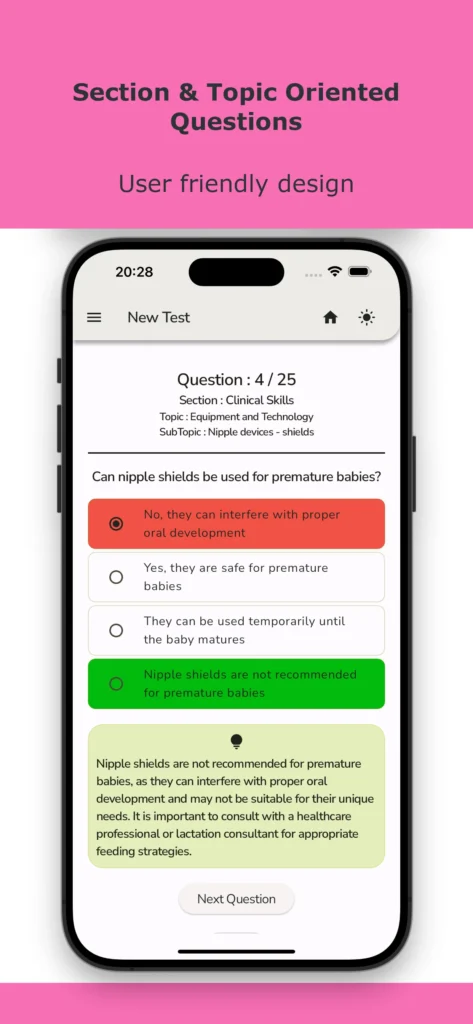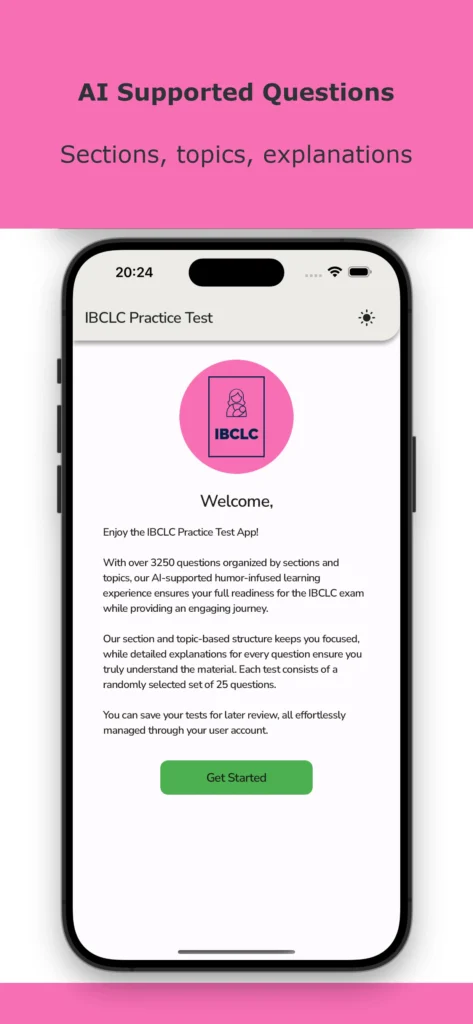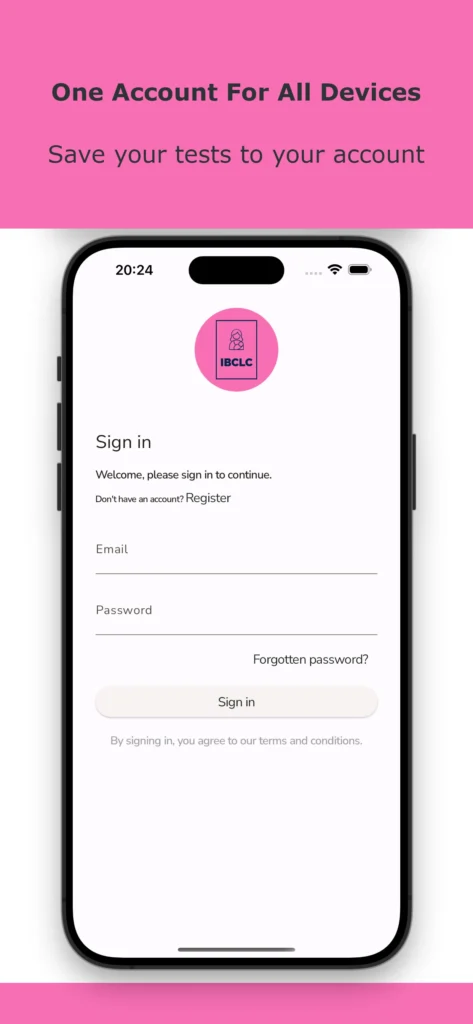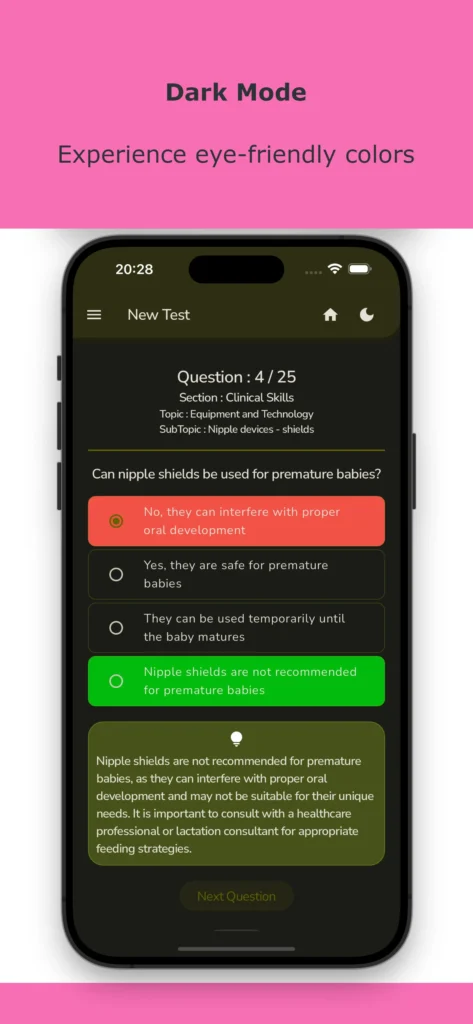Introduction to IBCLC
Welcome to the comprehensive guide on how to become an IBCLC as an RN. In this section, we will provide you with an overview of what an IBCLC is and the importance of this certification for registered nurses (RNs).
IBCLC stands for International Board Certified Lactation Consultant. It is a globally recognized credential that demonstrates expertise in lactation and breastfeeding support. As an RN, becoming an IBCLC can open up new career opportunities and allow you to provide specialized care to breastfeeding mothers and infants.
The role of an IBCLC is crucial in promoting and supporting breastfeeding. They work closely with mothers to provide evidence-based information, assess breastfeeding challenges, and offer guidance and support to ensure successful breastfeeding experiences.
Becoming an IBCLC as an RN requires a combination of education, clinical experience, and passing the IBCLC exam. Let’s explore the steps involved in becoming an IBCLC as an RN:
1. Obtain a Nursing Degree: To become an RN, you need to complete a nursing program and earn a nursing degree. This can be an Associate Degree in Nursing (ADN) or a Bachelor of Science in Nursing (BSN).
2. Gain Clinical Experience: After completing your nursing degree, you will need to gain clinical experience in maternal-child health, specifically in lactation and breastfeeding support. This can be done through working in a hospital, clinic, or community health setting that provides breastfeeding support services.
3. Meet the Lactation Education Requirements: The International Board of Lactation Consultant Examiners (IBLCE) requires candidates to complete specific lactation education courses. These courses cover topics such as anatomy and physiology of lactation, infant feeding practices, and counseling skills.
4. Obtain Lactation-Specific Clinical Hours: In addition to lactation education, you will need to accumulate a certain number of clinical hours in lactation and breastfeeding support. These hours can be obtained through supervised clinical practice or by working directly with breastfeeding mothers and infants.
5. Apply for the IBCLC Exam: Once you have met the education and clinical requirements, you can apply for the IBCLC exam. The exam assesses your knowledge and skills in lactation and breastfeeding support. It consists of multiple-choice questions and case studies.
6. Pass the IBCLC Exam: Passing the IBCLC exam is a significant milestone in becoming an IBCLC as an RN. It demonstrates your competence in providing lactation support and positions you as a trusted professional in the field.
7. Maintain IBCLC Certification: After becoming an IBCLC, you will need to maintain your certification by completing continuing education requirements and recertifying every five years.
Becoming an IBCLC as an RN can lead to various career opportunities. You can work in hospitals, clinics, private practices, or community health settings. Some RN IBCLCs also choose to start their own lactation consulting businesses.
In terms of salary, RN IBCLCs can earn a competitive income. According to the International Lactation Consultant Association (ILCA), the average salary for an RN IBCLC is around $70,000 per year. However, it’s important to note that salaries can vary depending on factors such as location, experience, and work setting.
In conclusion, becoming an IBCLC as an RN is a rewarding career path that allows you to make a positive impact on the lives of breastfeeding mothers and infants. It requires dedication, education, and clinical experience, but the rewards are well worth it. In the next section, we will dive deeper into the education and clinical requirements for becoming an IBCLC as an RN.
Requirements for Becoming an IBCLC
What is an IBCLC?
An IBCLC, or International Board Certified Lactation Consultant, is a healthcare professional who specializes in providing expert lactation support and guidance to breastfeeding individuals and their families. IBCLCs play a crucial role in promoting and supporting breastfeeding, as they possess the knowledge and skills to address a wide range of lactation issues and challenges.
Why Become an IBCLC as an RN?
For registered nurses (RNs) who are passionate about maternal and infant health, becoming an IBCLC can open up new career opportunities and allow them to make a significant impact on the lives of breastfeeding individuals and their babies. As an RN, you already have a solid foundation in healthcare and can build upon that by gaining specialized knowledge in lactation.
Requirements for Becoming an IBCLC
In order to become an IBCLC as an RN, there are several requirements that you need to fulfill:
- Educational Requirements: You must have completed a minimum of 90 hours of lactation-specific education. This education can be obtained through various sources, such as lactation courses, workshops, conferences, or online programs. It is important to ensure that the education you receive is recognized by the International Board of Lactation Consultant Examiners (IBLCE).
- Clinical Experience: You must have completed a minimum of 1,000 hours of supervised clinical experience in lactation. This experience can be gained through working in a healthcare setting that provides lactation support, such as a hospital, clinic, or private practice. It is important to document your clinical experience and obtain the necessary supervision.
- Health Sciences Education: You must have completed at least 14 health sciences courses, covering various topics such as anatomy, physiology, nutrition, and psychology. These courses can be taken as part of your nursing education or as additional coursework.
- Exam: Once you have fulfilled the educational and clinical experience requirements, you are eligible to sit for the IBCLC exam. This exam is administered by the IBLCE and assesses your knowledge and skills in lactation consulting. It is important to prepare for the exam by studying the exam content outline and utilizing study resources.
- Continuing Education: After becoming an IBCLC, it is important to engage in ongoing professional development and continuing education. This helps to ensure that you stay up-to-date with the latest research and best practices in lactation consulting.
Benefits of Becoming an IBCLC as an RN
Becoming an IBCLC as an RN offers a range of benefits:
- Expanded Career Opportunities: As an IBCLC, you can work in various healthcare settings, including hospitals, clinics, community health centers, and private practices. You may also have the opportunity to work as a lactation consultant educator or researcher.
- Ability to Make a Difference: By becoming an IBCLC, you can make a significant impact on the lives of breastfeeding individuals and their families. You can provide them with the support and guidance they need to have a successful breastfeeding journey.
- Personal Fulfillment: Helping individuals overcome breastfeeding challenges and witnessing the positive impact it has on their lives can be incredibly rewarding and fulfilling.
- Competitive Salary: IBCLCs, including those with an RN background, can earn a competitive salary. The exact salary can vary depending on factors such as location, experience, and work setting.
Becoming an IBCLC as an RN requires dedication, hard work, and a commitment to ongoing learning. However, the rewards and opportunities that come with this certification make it a worthwhile pursuit for RNs who are passionate about breastfeeding and maternal-infant health.
Steps to Become an IBCLC as an RN
Step 1: Obtain an RN License
The first step to becoming an IBCLC as an RN is to obtain your Registered Nurse (RN) license. This requires completing an accredited nursing program and passing the National Council Licensure Examination for Registered Nurses (NCLEX-RN). Once you have your RN license, you can proceed to the next step.
Step 2: Gain Clinical Experience
Before pursuing a career as an International Board Certified Lactation Consultant (IBCLC), it is important to gain clinical experience as an RN. This experience will provide you with the necessary skills and knowledge to support breastfeeding mothers and infants. Work in settings such as labor and delivery, postpartum, or neonatal intensive care units to gain exposure to breastfeeding support.
Step 3: Complete Lactation Education
After gaining clinical experience, you will need to complete lactation education to meet the requirements set by the International Board of Lactation Consultant Examiners (IBLCE). There are various options available, including online courses, workshops, and university programs. Look for programs that are approved by the IBLCE and cover the required topics.
Step 4: Obtain Clinical Practice Hours
In addition to lactation education, you will need to accumulate a certain number of clinical practice hours. The IBLCE requires a minimum of 500 hours of direct lactation consultation with breastfeeding families. These hours can be obtained through supervised clinical practice or by working with a mentor who is already an IBCLC.
Step 5: Apply for the IBCLC Exam
Once you have completed the required lactation education and clinical practice hours, you can apply to take the IBCLC exam. The exam is administered by the IBLCE and assesses your knowledge and skills in lactation consulting. It is important to thoroughly prepare for the exam by studying the exam blueprint and reviewing relevant resources.
Step 6: Pass the IBCLC Exam
The final step to becoming an IBCLC as an RN is to pass the IBCLC exam. This comprehensive exam covers various aspects of lactation consulting, including anatomy and physiology, infant feeding practices, and breastfeeding management. Passing the exam demonstrates your competence as an IBCLC and allows you to use the credential.
By following these steps, you can become an IBCLC as an RN and provide valuable support to breastfeeding mothers and infants. This rewarding career path combines your nursing skills with specialized knowledge in lactation and breastfeeding.
Job Opportunities for RN IBCLCs
Exploring Job Opportunities for RN IBCLCs
If you’re an RN who is passionate about lactation and wants to expand your career in this field, becoming an International Board Certified Lactation Consultant (IBCLC) can open up a world of job opportunities for you. As an RN IBCLC, you will have the expertise to provide comprehensive lactation support and guidance to new mothers and their infants.
Here are some of the job opportunities available for RN IBCLCs:
- 1. Hospital Lactation Consultant: Many hospitals have dedicated lactation consultants on staff to provide support to new mothers and help them with breastfeeding challenges. As an RN IBCLC, you can work in a hospital setting, collaborating with healthcare teams to ensure that mothers receive the necessary lactation support during their stay.
- 2. Private Practice: Some RN IBCLCs choose to establish their own private lactation consulting practice. This allows you to work independently and provide personalized lactation support to clients in their homes or in a clinic setting.
- 3. Public Health Programs: Public health programs often employ RN IBCLCs to provide lactation support and education to underserved populations. This can involve working in community health centers, WIC clinics, or other public health settings.
- 4. Telehealth: With the increasing popularity of telehealth services, there is a growing demand for RN IBCLCs who can provide virtual lactation support and consultations. This allows you to work remotely and reach a wider audience.
These are just a few examples of the job opportunities available for RN IBCLCs. The demand for lactation consultants is expected to continue growing as more healthcare providers recognize the importance of breastfeeding and the need for specialized support.
Salary and Career Outlook:
The salary for RN IBCLCs can vary depending on factors such as location, experience, and work setting. According to the International Lactation Consultant Association (ILCA), the average salary for an IBCLC ranges from $50,000 to $80,000 per year. However, it’s important to note that non-RN IBCLCs may earn a lower salary compared to RN IBCLCs due to the additional qualifications and expertise that RNs bring to the role.
As an RN IBCLC, you can expect a rewarding and fulfilling career that allows you to make a positive impact on the lives of mothers and infants. Your expertise in lactation support will be highly valued, and you will have the opportunity to work with diverse populations and contribute to improving breastfeeding rates and maternal-infant health outcomes.
Salary Outlook for RN IBCLCs
What is the Salary Outlook for RN IBCLCs?
As an RN IBCLC, you can expect a competitive salary that reflects your specialized knowledge and skills in lactation consulting. The salary range for RN IBCLCs can vary depending on factors such as experience, location, and work setting.
According to the Bureau of Labor Statistics (BLS), the median annual wage for registered nurses was $75,330 as of May 2020. However, it’s important to note that this figure includes all registered nurses and does not specifically focus on those with the IBCLC certification.
While specific data on the salary of RN IBCLCs is limited, it is generally understood that obtaining the IBCLC certification can lead to higher earning potential within the field of lactation consulting.
Factors Affecting RN IBCLC Salaries
Several factors can influence the salary outlook for RN IBCLCs:
- Experience: As with any profession, the level of experience you have as an RN IBCLC can impact your earning potential. Nurses with more years of experience and a proven track record in lactation consulting may command higher salaries.
- Location: The geographic location where you practice as an RN IBCLC can also play a role in determining your salary. Salaries can vary significantly between different states and regions, with areas of high demand often offering higher compensation.
- Work Setting: The type of healthcare facility or organization where you work can affect your salary as an RN IBCLC. Hospitals, private practices, and government agencies may have different salary structures and benefits.
Advantages of Becoming an RN IBCLC
Becoming an RN IBCLC offers several advantages, including:
- Higher Earning Potential: By obtaining the IBCLC certification, you can position yourself for higher-paying opportunities within the field of lactation consulting.
- Specialized Knowledge and Skills: As an RN IBCLC, you will have the expertise to provide comprehensive lactation support to mothers and infants. This specialized knowledge can make a significant impact on the health and well-being of breastfeeding families.
- Job Satisfaction: Working as an RN IBCLC allows you to make a meaningful difference in the lives of mothers and babies. The ability to support and empower families on their breastfeeding journey can be incredibly rewarding.
Overall, the salary outlook for RN IBCLCs is promising, with the potential for competitive compensation and the opportunity to positively impact the lives of breastfeeding families.
Conclusion
In conclusion, becoming an IBCLC as an RN is a rewarding and fulfilling career path for those interested in supporting breastfeeding mothers and infants. By following the steps outlined in this comprehensive guide, you can embark on a journey to become a certified lactation consultant. Remember to complete the necessary education and clinical practice requirements, as well as pass the IBCLC exam. Once you have obtained your certification, you will have the opportunity to work in various settings, such as hospitals, clinics, and private practices, providing valuable support and guidance to breastfeeding families. With the increasing demand for lactation consultants, there are ample job opportunities available for RN IBCLCs. The salary for RN IBCLCs can vary depending on factors such as location, experience, and employer. However, it is important to note that the salary for non-RN IBCLCs may differ from that of RN IBCLCs. If you are passionate about breastfeeding and helping mothers and infants, pursuing a career as an IBCLC as an RN can be a fulfilling and impactful choice. Start your journey today and make a difference in the lives of breastfeeding families.








